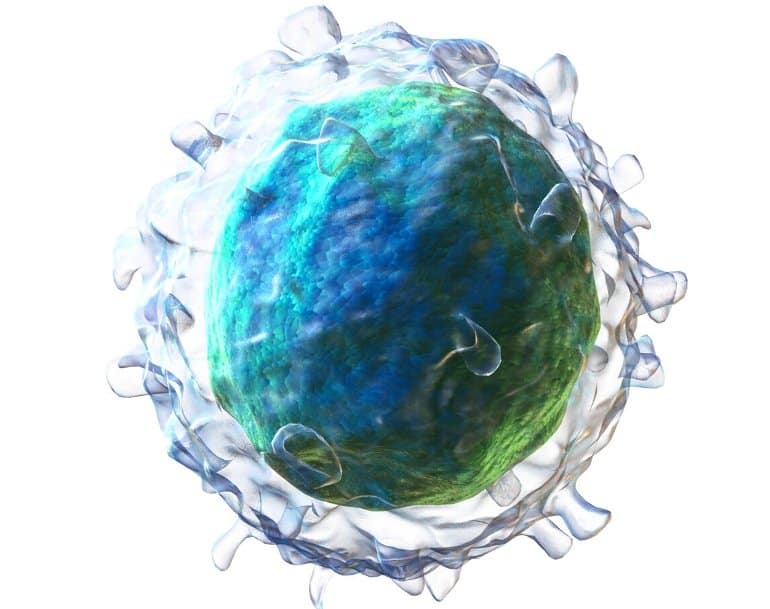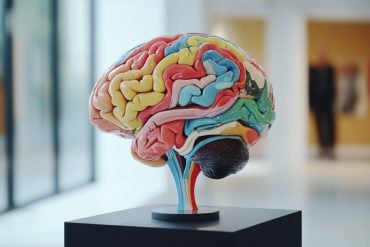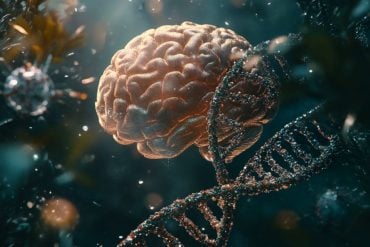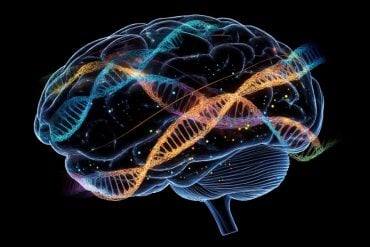Summary: Researchers found significant differences in B cells in women with postpartum depression. B cells are important components of the immune system that help produce antibodies and secrete both pro and anti-inflammatory factors.
Source: UNC Health Care
A study published in Molecular Psychiatry is the first to look at multiple levels of biology within women with postpartum depression (PPD) to see how women with the condition differ from those without it. PPD affects 1 in 7 women and has negative mental health consequences for both mother and child. However, the precise biological mechanisms behind the disorder are unknown.
“We don’t have PPD figured out,” said lead author Jerry Guintivano, Ph.D., assistant professor in the UNC Department of Psychiatry.
“A lot of biological research focuses on candidate genes and hormones, and we do have a lead on some PPD-specific medications, but it’s important to take multiple avenues to target this condition. Not every manifestation of PPD is the same.”
That’s why Guintivano led a team of researchers from the UNC School of Medicine to conduct the largest transcriptome-wide association study for PPD to date. Previous studies have only analyzed whole blood samples.
This study took a deeper look and examined the different components of blood. They took blood samples from 1,500 racially and ethnically diverse women from across North Carolina who had given birth within the past six weeks, 482 of whom were diagnosed with PPD.
Researchers used RNA sequencing, DNA genotyping, and assessment of DNA methylation—amounting to three levels of basic biology evaluation—to look for differences in components of the blood samples from women with PPD versus women without PPD.
They found that B-cells had significant differences in women with PPD. B-cells are an important part of the immune system. They become activated when their receptor recognizes an antigen and binds to it. Activated B-cells then produce antibodies, and also secrete pro- and anti-inflammatory factors.
“There’s a really delicate interplay of the immune system during pregnancy,” Guintivano said. “It has to prevent infection from a cold, and it also has to finely tune itself so it doesn’t recognize the fetus as a foreign body and attack it. Then in the postpartum period, all these hormones and pathways reset to get back to pre-pregnancy.”
In women with PPD, the UNC researchers found thousands of individual B-cell transcripts that were different from women without PPD, regulated in part by genetic variants and DNA methylation. To confirm those findings they conducted pathway analysis, which implicated altered B-cell activation and insulin resistance.

“This is really just the first step in a long line of research that now needs to be done,” Guintivano said.
“This is the biggest study of its type but we still don’t know why B-cells are changing. Are they reflecting another change in the body that is caused by or causes PPD? What is driving this B-cell behavior?”
Guintivano says their next step is to conduct a longitudinal study that tracks women across a longer period of time to see how B-cells change through pregnancy and into the postpartum period. He says none of this research would be possible without many women being dedicated to research on PPD.
“The women who participated in this study are new moms who came in during a very critical time when their babies are weeks old to participate in research to help other women, Guintivano said. “I want to thank them for that. We want to do their contributions justice with our research.”
About this PPD research news
Author: Press Office
Source: UNC Health Care
Contact: Press Office – UNC Health Care
Image: The image is credited to Blausen.com staff (CC BY-SA 4.0)
Original Research: Open access.
“Transcriptome-wide association study for postpartum depression implicates altered B-cell activation and insulin resistance” by Jerry Guintivano et al. Molecular Psychiatry
Abstract
Transcriptome-wide association study for postpartum depression implicates altered B-cell activation and insulin resistance
Postpartum depression (PPD) affects 1 in 7 women and has negative mental health consequences for both mother and child. However, the precise biological mechanisms behind the disorder are unknown.
Therefore, we performed the largest transcriptome-wide association study (TWAS) for PPD (482 cases, 859 controls) to date using RNA-sequencing in whole blood and deconvoluted cell types.
No transcriptional changes were observed in whole blood. B-cells showed a majority of transcriptome-wide significant results (891 transcripts representing 789 genes) with pathway analyses implicating altered B-cell activation and insulin resistance.
Integration of other data types revealed cell type-specific DNA methylation loci and disease-associated eQTLs (deQTLs), but not hormones/neuropeptides (estradiol, progesterone, oxytocin, BDNF), serve as regulators for part of the transcriptional differences between cases and controls. Further, deQTLs were enriched for several brain region-specific eQTLs, but no overlap with MDD risk loci was observed.
Altogether, our results constitute a convergence of evidence for pathways most affected in PPD with data across different biological mechanisms.






